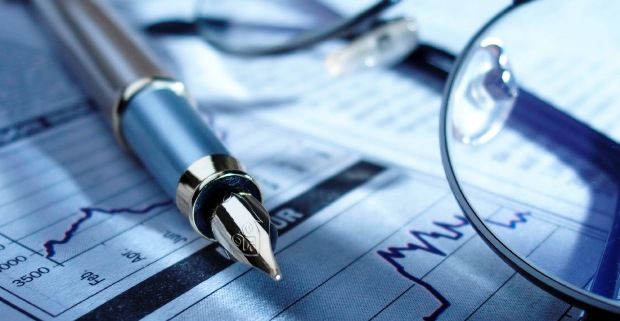
Weekly balance: Transatlantic trip, IMF agreements, and cleansing of banks
The prime minister brought back from D.C. and Ottawa the investors’ promises of a free trade zone, parliament adopted the bills to secure the IMF tranche, and the NBU announced the completion of cleansing of the banking system - these are the main economic news of the past week.
The US-Ukraine Business Forum, held in Washington on July 13, has become an important event for the development of relations between the two countries, although it was a largely a presentation of the Ukrainian government’s efforts to improve the investment climate.
Arseniy Yatsenyuk was welcomed at the highest level, as he personally met with US President Barack Obama and Vice President Joe Biden.
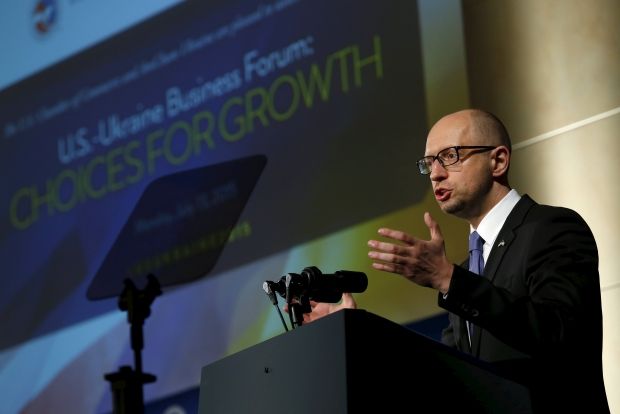
Still, some wariness regarding commitment to reforms was naked eye visible.
US Secretary of Commerce Penny Pritzker said that she would pay a visit to Kyiv in October, to assess the achievements and celebrate the results, adding that if the Ukrainian side sees it as a challenge, then so be it.
However, the government delegation did make substantial progress in attracting direct foreign investment.
In particular, Horizon Capital, US investment fund, a co-founder of which is Ukraine’s current Finance Minister, US-born Natalie Jaresko, entered the capital of Ukraine’s leading online retailer rozetka.ua.
In the energy sector, Ukraine has reached an agreement with the US-based Frontera Resources Corporation on the construction of an LNG-terminal. Liquefied gas is planned to be imported from Georgia.
In addition, Ukraine has signed a memorandum with the European division of Riverstone on increasing the purchases of gas for the domestic industry.
In this regard, US Vice President Joe Biden has promised to provide an increase in the reverse gas flow from the EU and reaffirmed that the US administration has been working intensively to persuade Ukraine's neighbors to increase reverse gas supplies to Ukraine.
The American agricultural company Cargill, which earlier expressed its intentions to build a grain terminal in the port Yuzhny, decided to increase investment in infrastructure and the construction of a port terminal by nearly $100 million.
Also, the American businessmen expressed willingness to provide our country with agricultural machinery worth $1 billion. At the same time, the Ukrainian government started negotiations with some partners from the US and Canada regarding the construction of factories for the production of agricultural machinery in Ukrainian territory.
After quite a successful trip to Washington, the prime minister continued his voyage visiting Canada, where the agreement on the terms of a free trade zone was reached.
According to Ukraine’s trade representative Nataliya Mykolska, the FTZ agreement with Canada will open 98% of Canada’s market for Ukrainian exporters, including that of the important agricultural and industrial product groups.
Ukraine, for its part, shall eliminate tariffs for almost 80% of Canadian exports, followed by the gradual elimination of other tariffs in three, five, and seven years.
Mykolska said that the Ukrainian sunflower oil, sugar, chocolate, confectionery and bakery products, alcoholic beverages and beer, clothing, ceramics, iron, steel and minerals are to benefit from duty-free access to the Canadian market. "In addition, Canada will eliminate all above-quota tariffs for primary processing products, such as dairy products, poultry, eggs," said Mykolska.
It should be noted that the trade turnover between Ukraine and Canada in January-May this year amounted to only $13 million, while its potential volume exceeds $400 million.
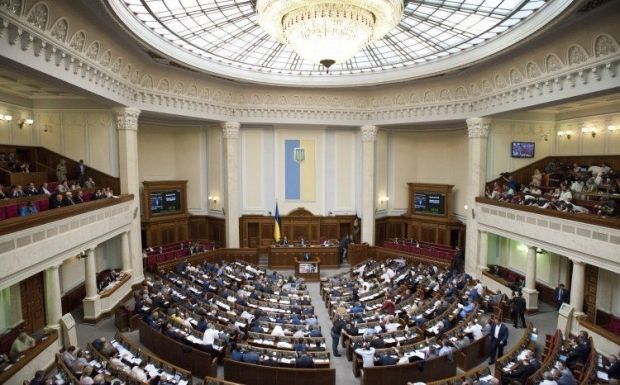
A prudent parliament and a situation with a debtParliament finally adopted the so-called IMF bills / Photo from UNIAN
Lawmakers finally voted last week for all five bills required by the IMF program, with quite a long delay.
These bills open the way for Ukraine to get $3.2 billion loans from its international partners, including the $1.7 billion of the second IMF tranche, $1 billion from The World Bank, $300 million from Japan and another $200 million from Germany.
Mandatory requirements of the IMF program included the adoption of a bill on the improvement of the system of guaranteeing the individuals’ deposits.
In particular, the Parliament adopted the bill, required in the IMF program, on the improvement of the system of guaranteeing the individuals’ deposits, which simplifies the procedure for obtaining deposits and raises the responsibility of owners of insolvent banks, as well as enhances the independence of the Deposit Guarantee Fund.
In addition, the parliament adopted a bill abolishing the moratorium on seizing the property of companies with over 25% state-owned shares, which are debtors of Naftogaz; and two bills on increasing the effectiveness of the Anti-Corruption Bureau.
Therefore, to fulfill the IMF’s key requirements, Ukraine lacks just reaching an agreement with its creditors on a $15.3 billion public debt restructuring.
In late June, Natalie Jaresko stated that if there were no progress in talks with the creditors, Ukraine would "theoretically" be in a position to declare a moratorium on public debt payments in late July, with such right being provided by a law, which had come in force on June 17, and the Cabinet had the right to impose a moratorium on foreign debt payments to private creditors until July 1, 2016.
However, the IMF agreed to disburse the second tranche of the loan even if a moratorium on payments of a number of external commercial debts was declared.
Meanwhile, according to Deputy Finance Minister Anton Shevalev, Ukraine will not declare such moratorium (which would actually mean a technical default) if it achieves progress in negotiations with the creditors prior to the meeting of the Board of Governors of the International Monetary Fund scheduled for late July an UNIAN correspondent reports.
But until recently, no visible progress has been made in these talks.
“I ask the creditors to unite and be constructive,” said Arseniy Yatsenyuk, while addressing the the US-Ukraine invest,ent conference participants, adding that the creditors accepting Ukraine’s offer on a $15.3 billion public debt restructuring is “critical” to our country and means real help to the Ukrainian people.
In turn, the US Treasury Department reaffirmed its full support of a timely conclusion of talks.
In the wake of these dramatic statements, Natalie Jaresko held her first personal meeting with the Creditors Committee in Washington on July 15, and the negotiations have actually moved forward.
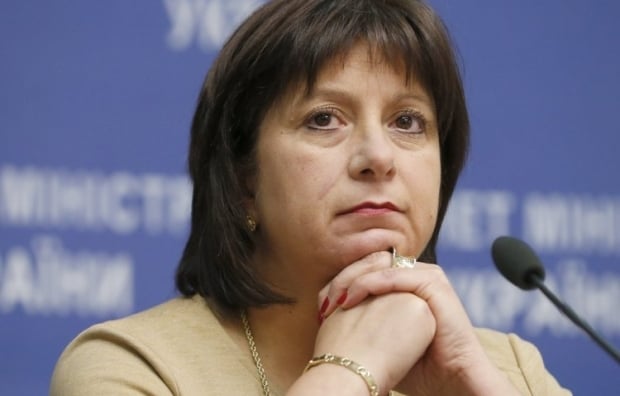
According to the joint statement of the Committee and the Ministry of Finance, the parties managed to achieve significant progress, and additional meeting for early completion of ongoing debt operations will take place the following week.
Thus, the past week has given hope for macroeconomic stabilization not only through loans from international partners, but also due to the completion of the epic saga of the Ukrainian debt transactions.
Banking system: no ballast, no trash
As part of the purification process of the banking system, which started in 2014, the National Bank declared insolvent 54 financial institutions. The Guarantee Fund is to pay UAH 56 billion to nearly one million depositors.
Amid hopes for macroeconomic stabilization, Head of the NBU Valeriya Hontareva announced that the cleansing process of the banking system can be considered complete.
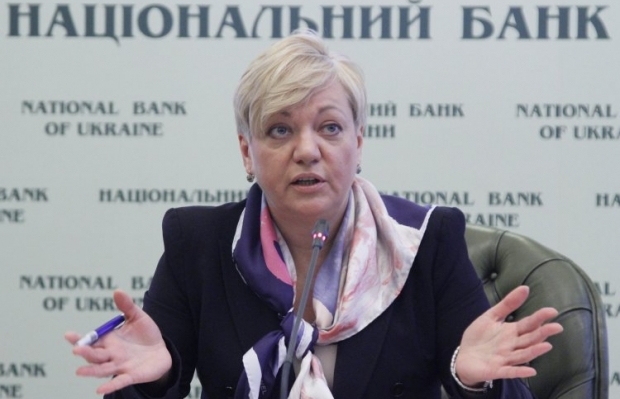
In addition, Hontareva expressed confidence that the banks of the first and second groups, which include major financial institutions, are no longer at risk, and none of them will be declared insolvent.
However, there was a fly in the ointment. The fate of one of Ukraine’s largest banks, "Finance and Credit", owned by Kostyantyn Zhevago is still unclear.
According to Hontareva, the NBU recognizes the bank insolvent if its shareholder fails to implement an approved plan of capitalization.
"Everything is written on paper. If shareholders fulfill their obligations, everything will be alright, if not – [welcome] to the Guarantee Fund ... The term is until the end of summer," she said.
Another positive news from the financial regulator was its willingness to terminate administrative restrictions on the forex market in case of reaching an agreement with creditors on debt restructuring.
"Together with the International Monetary Fund, we have created a program of canceling currency restrictions. The next big lifting of restrictions will occur after our Ministry of Finance completes debt restructuring. If it completes it in July, then it will happen in July, if it will be September, then – in September ", said Hontareva.
The restrictions were designed to stabilize the outflow of deposits from the banking system and stop the rapid devaluation of the hryvnia, which, since the NBU’s transition to a flexible rate fixing in 2014 has depreciated against the US dollar by the end of February 2015 at the official rate by 3.8 times - down to a new historical low, at the level of UAH 30.01 to the dollar. After the introduction of the NBU restrictions and the allocation of the first IMF tranche as part of a new cooperation program, the hryvnia has strengthened in less than two weeks it its quotations have been varying from UAH 20.5 to UAH 23.5 to the dollar during the past three months.
Thus, in the wake of positive news from Washington, Ukrainian business can finally, and quite seriously, expect the abolition of forex restrictions, while the Ukrainian citizens can expect that their deposits will not perish in yet another bankrupt bank.
Ukraine is now waiting on the results of the final round of negotiations with creditors and also on the news from the IMF; while many Ukrainian companies will publish their financial reports for the first half of 2015, which will display the state of our private sector in the crisis period.
Maksym Shevchenko (UNIAN)

